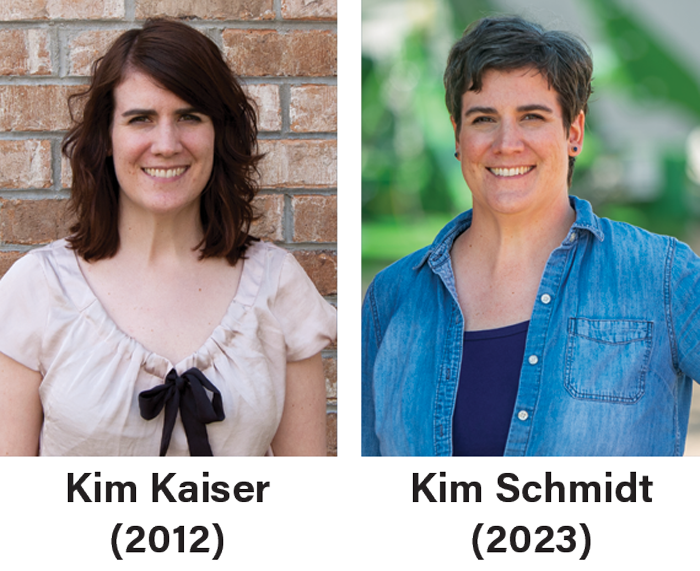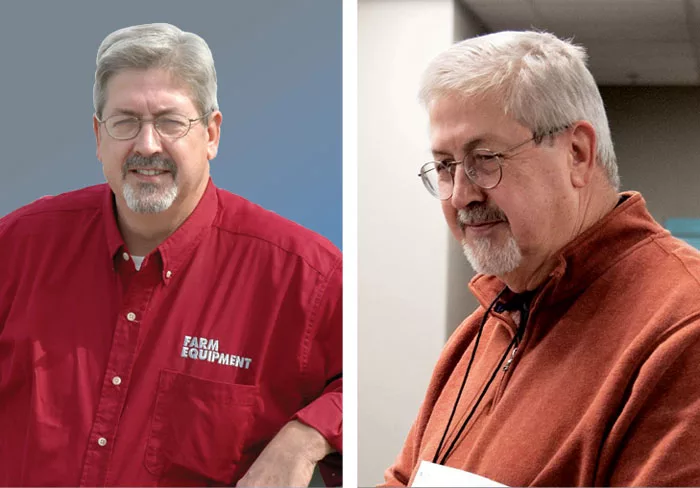When I joined Lessiter Media in 2005 as an editor for Farm Equipment and Ag Equipment Intelligence (then called Ag Industry Watch), I believed a big part of my job was to be an advocate for farm equipment dealers. Several years ago, a shortline manufacturer told us he thought the magazine did a good job representing the best interests of our readers. He said, “If you don’t speak up for dealers, who will?” Hopefully, we somehow made a difference in this way.
More importantly, our stated mission is to help farm equipment dealers improve their operations and to be more profitable. Over the past few years, we’ve been told Farm Equipment, in some measure, has contributed to improving our industry.
The real beauty is that we didn’t do it by telling dealers what we knew. We did it through compiling and disseminating the words, thoughts and ideas of successful dealers willing to share their expertise with their colleagues. Our formula is simple: be a vehicle that allows dealers to talk to other dealers. As a result, it is really our readers who are making the industry better.
It’s been a great ride for me this past decade and a half. Along the way we were able to develop some valuable cargo, like Rural Lifestyle Dealer and Precision Farming Dealer.
Kim Schmidt’s Arrival 2012

Retired Executive Editor Dave Kanicki notes that another key milestone in Farm Equipment history was the addition of Kim Kaiser as managing editor in 2012, the same week she got engaged on her way to becoming Mrs. Schmidt. The Schmidt story is an example of the Farm Equipment staff “walking the talk” on succession planning, a common topic covered during that time.
Schmidt was discouraged by not hearing back from Kanicki after her interviews at the old Lessiter Media offices, but knew it was a 2-man show and that both of us were consumed with the DOY visits.
“I'm glad I toughed out the wait,” she says. “Dave told me during my interview that he intended to hire his replacement, and I’d liked knowing there’d be growth opportunities. Dave delivered on it from the minute I walked in the door, providing the mentorship and training so he could retire without any of us being worried about it.”
Kanicki says Schmidt’s development allowed him to retire. “I wouldn't have left if you hadn't been there, Kim, because I wouldn't have left Mike in the lurch. Like he and I did in Chicago, the transition to your taking the wheel was seamless. When I moved out and moved you into that position, everybody knew it. And that's the way it should be.”
Kim was comfortable with Farm Equipment, but taking over Ag Equipment Intelligence and its $499 subscription price tag was intimidating. “But we did it and it worked out OK.”
Cygnus was not profitable with the newsletter, but found it so important to authority and reputation that it continued to publish it anyway. As part of Lessiter Media, Ag Equipment Intelligence achieved profitability for 13 of the last 18 years, and the title continued to flourish in recent years with special reports (including topics like Autonomous Farm Equipment’s Adoption & Outlook, Alternatives to Fossil Fuels in Farm Machinery and the Projections for Electric Farm Machinery), customized research, licensing and expansion of the Executive Briefing specialized content.
– Mike Lessiter, Editor/Publisher
We were also able to grow Ag Equipment Intelligence from a publication with less than 100 subscribers into the leading business newsletter focused entirely on the farm equipment industry. With the participation and support of ag machinery dealers, we introduced the annual Dealer Business Outlook & Trends report in 2005 and the monthly Dealer Sentiments & Business Conditions Update in 2011. With the Big Dealer report, which we rolled out in 2011 that tracks the rapid consolidation of dealerships in the U.S. and Canada, we’ve kept the industry informed of mergers and acquisitions taking place.
Describing What It Takes to Produce Farm Equipment …
In the interviews comprising the new Farm Equipment History Mini-Series, Schmidt posed questions about what it takes to be a successful editor of Farm Equipment.
Kanicki answered by stressing integrity and the established values that editors could point to. “These dealers can sniff out a phony in a minute, and one of the best compliments I ever got from a dealer was, ‘You guys shoot straight down the middle. Sometimes it looks like you're picking on the manufacturers, but other times it becomes clear that you were shooting straight.’ And again, being a resource for your readers and always keeping your readers in the forefront. We can get pressure from advertisers and manufacturers to do some things, but if it wasn't good for the reader, it seldom is worthwhile.
“Put the reader first and you're going to win. Work hard and care about what you do — that's the most important thing when I evaluate young editors. Because if they care and have skills, we’ll have a winner.”
Schmidt emphasizes the service journalism element of immersing ourselves with the audience, which is foreign to many new hires. “We should be alongside the dealers and thinking about what matters to them and why they should care about the content we’re considering. And once we can answer that, going deep enough to find something that’ll make their business better.
“And we can’t be lazy about it,” she says, noting that dealers expect the Farm Equipment team to work as hard as they do for their customers. “We don’t have time nor interest in pursuing the fluff stories — we need to put all our effort into the ‘meat and potatoes,’ like Frank says.”
The immersive element is different from what most university journalism schools teach — that is, to remain independent and from-a-distance observers. But effective business-to-business or trade media requires that immersion. To put together a good article or a conference program, our editors need to talk to a lot of people and determine what needs to be said and by whom, and to be able to vet ideas and separate the wheat from the chaff.
When one gets in there and does it, you see the purpose and meaning in what you're doing to help them better manage their people, be more successful and create a better experience for farmers who put food on our tables. We try to make that connection very early on with our new hires and get them to understand the importance and weight of the content. It doesn’t feel like work when you’re realizing that you’re helping dealers you like and respect. I've always found meaning in what we have done since the day we acquired the publications in 2004.
– Mike Lessiter, Editor/Publisher
Read Farm Equipment's 55 Years of History Coverage
Click here for the Farm Equipment History Video seriesClick here to read the "Looking Back" blog series







